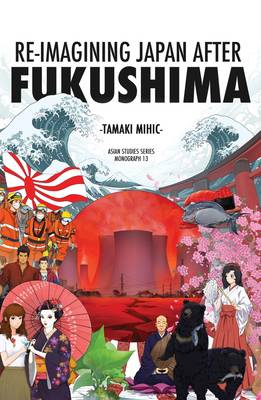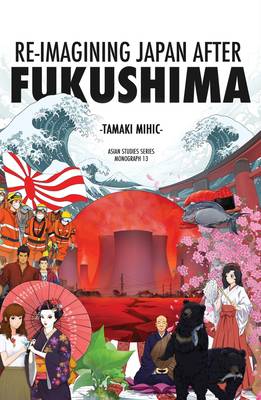
Door een staking bij bpost kan je online bestelling op dit moment iets langer onderweg zijn dan voorzien. Dringend iets nodig? Onze winkels ontvangen jou met open armen!
- Afhalen na 1 uur in een winkel met voorraad
- Gratis thuislevering in België vanaf € 30
- Ruim aanbod met 7 miljoen producten
Door een staking bij bpost kan je online bestelling op dit moment iets langer onderweg zijn dan voorzien. Dringend iets nodig? Onze winkels ontvangen jou met open armen!
- Afhalen na 1 uur in een winkel met voorraad
- Gratis thuislevering in België vanaf € 30
- Ruim aanbod met 7 miljoen producten
Zoeken
Omschrijving
The 2011 Tōhoku earthquake, tsunami and Fukushima nuclear disaster (collectively referred to as '3.11', the date of the earthquake), had a lasting impact on Japan's identity and global image. In its immediate aftermath, mainstream media presented the country as a disciplined, resilient and composed nation, united in the face of a natural disaster. However, 3.11 also drew worldwide attention to the negative aspects of Japanese government and society, thought to have caused the unresolved situation at Fukushima. Spurred by heightened emotions following the triple disaster, the Japanese became increasingly polarised between these two views of how to represent themselves. How did literature and popular culture respond to this dilemma? Re-imagining Japan after Fukushima attempts to answer that question by analysing how Japan was portrayed in post-3.11 fiction. Texts are selected from the Japanese, English and French languages, and the portrayals are also compared with those from non-fiction discourse. This book argues that cultural responses to 3.11 had a significant role to play in re-imagining Japan after Fukushima.
Specificaties
Betrokkenen
- Auteur(s):
- Uitgeverij:
Inhoud
- Aantal bladzijden:
- 174
- Taal:
- Engels
- Reeks:
- Reeksnummer:
- nr. 13
Eigenschappen
- Productcode (EAN):
- 9781760463533
- Verschijningsdatum:
- 11/03/2020
- Uitvoering:
- Paperback
- Formaat:
- Trade paperback (VS)
- Afmetingen:
- 153 mm x 234 mm
- Gewicht:
- 331 g

Alleen bij Standaard Boekhandel
+ 110 punten op je klantenkaart van Standaard Boekhandel
Beoordelingen
We publiceren alleen reviews die voldoen aan de voorwaarden voor reviews. Bekijk onze voorwaarden voor reviews.











